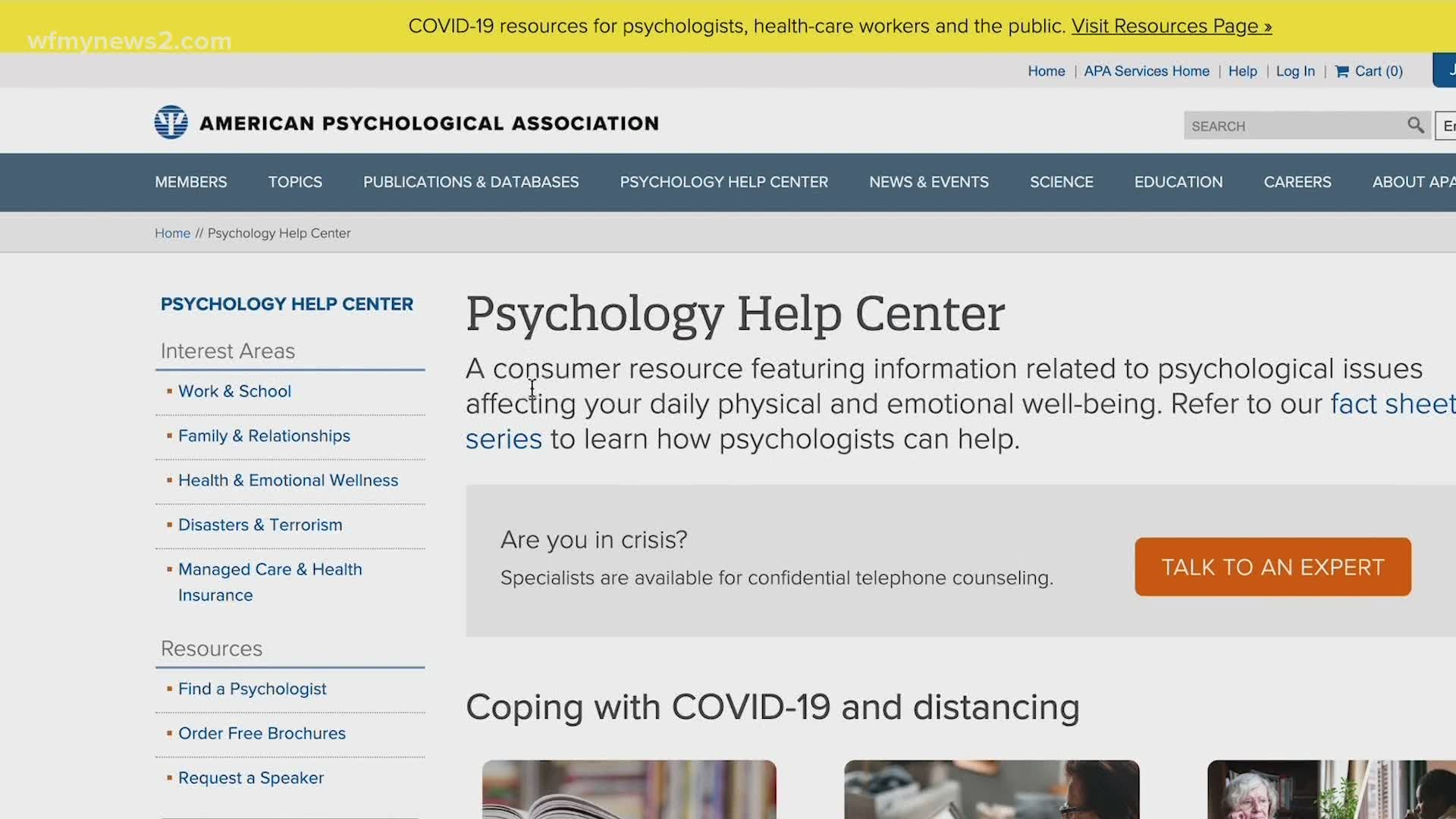GREENSBORO, N.C. — With so many people sick from COVID-19, you may not have as much time to focus on the toll the pandemic may be taking on your mental health. But many people are experiencing a range of stressful problems, including feelings of isolation, concerns about personal finances and politics, and worry about their kids and their future. In fact, a recent Consumer Reports survey found that 38 percent of adults have experienced depression or anxiety as a result of the COVID-19 outbreak. As Consumer Reports explains, there are ways to get affordable mental healthcare even if you’re staying home.
Numerous studies have shown that teletherapy can be as effective as in-person care. And it can offer you more scheduling flexibility, convenience, and privacy, and a bigger pool of potential therapists.
If you’re interested in finding a therapist who will see you virtually, a good place to begin is by asking for a referral from your primary care provider, family, or friends.
A number of websites are a good resource as well, like the American Psychological Association and the American Psychiatric Association.
If you have health insurance, you can also look on your insurer’s website for a list of therapists covered under your plan.
There are also free options out there. You can call 211 or go to 211.org for a referral to a provider who offers support at no cost or on a sliding scale based on your income. You can also call the National Suicide Prevention Lifeline and talk anonymously to a trained mental health professional free of charge.
To get the most out of a virtual session, it’s important that you feel comfortable with the therapist. When talking to a prospective therapist, ask about his or her years in practice, specialties, therapy techniques, and fee.
And if you or someone you know need immediate help, call the National Suicide Prevention Lifeline at 800-273-TALK (8255) or send a message to the Crisis Text Line at 741741. Both programs provide free, confidential support 24/7.

